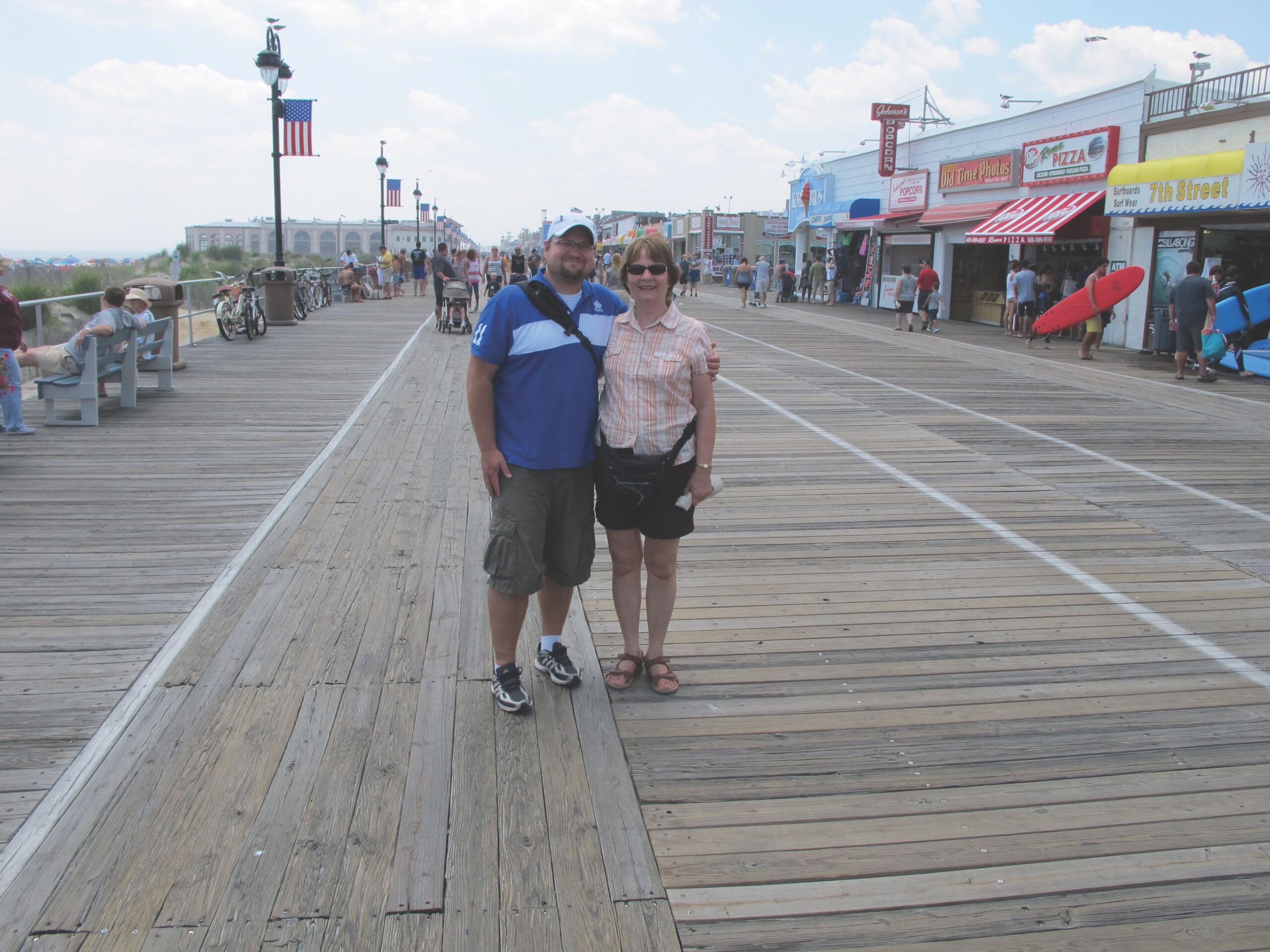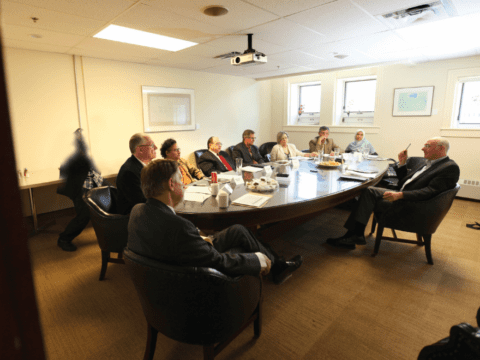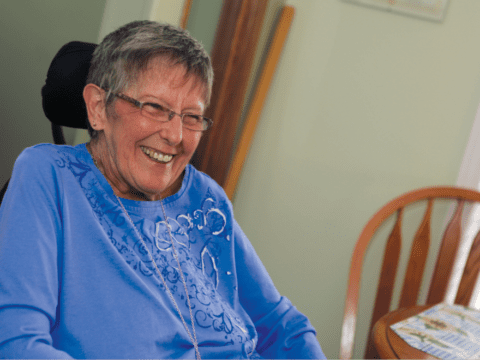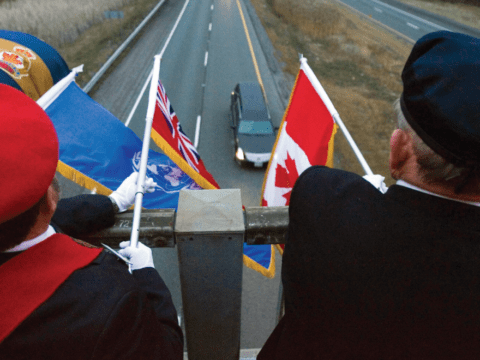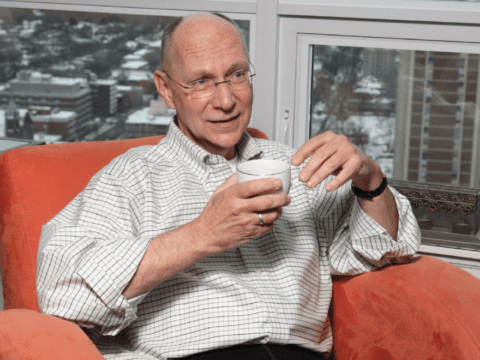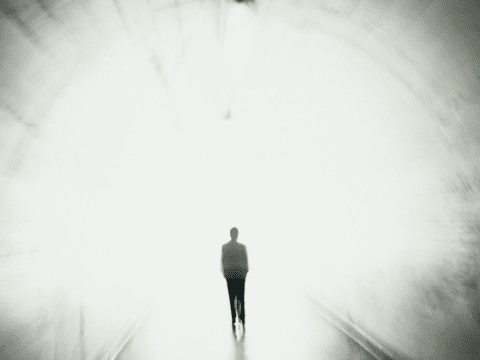It’s funny how one day, you can dance on the clouds, and the next, your eyes are trained firmly, irreversibly, helplessly under the ground.
I had just finished my first skydive. At 4,300 metres, I leaped from an airplane, free-falling at about 200 kilometres an hour for more than a minute in the thin air over a remote part of Queensland, adrenaline coursing through my veins as I fell fast over the Great Barrier Reef and the nearby north Australian shore, in a collision course with the ground. My tandem partner pulled the pin, and we floated, steadily, beautifully, harmlessly, into a placid green field. A little punch-drunk, I hugged the man. Then I drove a camper — part of an article I was writing, about taking a solo road trip from Cairns to Brisbane — to a small cottage in the charming town of Mission Beach, where, once the adrenaline ebbed away, I took a walk along the edge of the water, then bedded down for the night.
The next morning, I awoke to a whole new reality. A nightmare, really. I opened my laptop and found that my brother-in-law, Jeremy, had left me a panicky Facebook message. Call. Urgent. If anyone’s in Australia, please wake Tim up. That was all it said. Jeremy is not a man who pulls pranks. I called his cell, my heart beating hard in my chest.
My mother was dead. Or, strictly speaking, she was going to die. Very soon. No brain activity. Just a matter of the heart following suit. Doctors were taking her off life-support. It was Mother’s Day. I had just talked to her on the phone, a couple of days earlier, when I was back in Cairns. We’d chatted about our respective weeks and other mundane things, and said our standard — but still heartfelt — “I love you” at the end of the call. Neither of us had any idea that it would be the last time we would ever speak — on this earth, at least.
Opening my computer to figure out my flights home, I found an e-mail from her, a response to the note I’d sent her the night before, wishing her a happy Mother’s Day. “I love you SO SO much too and you are the very very best son in the whole wide world!” she wrote, promising to write again that night. It was my last message from my mother.
Thirty minutes after sending that e-mail, my healthy, energetic, beloved mom collapsed, struck down by a massive brain hemorrhage. I would later learn that she and my father had sat down to eat their breakfast. As they began to say a brief blessing over the food, my mom stood up. “Oh dear God, my head!” she screamed, staggering into the living room before collapsing. My father called 911 and valiantly performed CPR. But it was no use. The damage from the brain bleed was immense. She was forever, irretrievably, gone.
I never experienced denial. From moment one, not once did I manage to convince myself that my mom wasn’t dead. From that little cottage in the far reaches of Australia, I was patched through — via FaceTime — to see my mom one more time. She was in a hospital bed and didn’t look anything like the warm, wonderful woman who had spent her life making mine better. Her eyes were open, but her pupils darted in all directions. Her mouth twitched. It was her face, but she wasn’t behind it. Her spirit had departed.
Some people have difficult relationships with their moms. I didn’t. Never. Not at all. Marlene Charlotte Johnson enveloped our family with a love that was palpable. It was actual. It was real. It was from God, and it was the strongest force I’ve ever encountered.
And just like that, it was gone. Dead. Out of my life. After finishing the FaceTime, I crumbled. I had always thought that I would be stoic — a rock — in this kind of situation. The kind of guy who absorbs very bad news with an unreadable face and a stiff nod, strong behind a stern exterior until I could deal with the real emotions later, down the road, when things calmed down a little. But no. Not even close. In pieces, I fell to the floor. I pounded it with my fist. I yelled and cried with great, heaving sobs.
I had to return the camper to the rental place, back in Cairns. That much was clear. Also, I was in Australia and had to get back to Canada. So I sucked it up and made some plans. I called Air New Zealand — the carrier that had brought me to this remote place. A woman I will never meet changed my return date and upgraded me to business class so I could maybe get a bit of sleep on the long journey home. Then, I somehow managed to steer the unwieldy camper back to the garage and rental office on the edge of town.
A long-haired, rough-and-ready, somewhat toothless mechanic accepted the keys, then stood beside me as I awaited my cab back to the airport. Not knowing what to say, he offered a cliché. “It’s always the best ones who go too soon,” he said with a solemn nod, his unpretty face a picture of sympathy. But to his eternal credit, he stayed with me, as if he sensed that I needed it, standing silently, inches to my right, staring, like me, straight ahead, until the taxi finally came. I will always remember that man.
Getting home from Australia took two full days. When I landed in Los Angeles, I checked my phone while we were still on the Tarmac. An e-mail from my sister, Lisa, confirmed that the inevitable had happened. Earlier that morning, my mother had breathed her last. May 13, 2014, was my mom’s last day on earth. In my cushy business-class seat, I covered my face with my hands and wept while everyone else in the cabin pretended not to notice. The service manager quietly dropped off a box of tissues for me and squeezed my shoulder. I will never forget that man either.
I had thought that returning to Canada and facing the reality head-on would be worse. But it was, in fact, much better. My father and Jeremy met me at the airport and held me in a strong embrace. I was home. It was time to grieve. The wake and the funeral — the latter of which was coincidentally held on what would have been my mom’s birthday — are somehow, at once, both a blur and an indelible memory. And then I was left to the grieving.
I had never experienced the wretched pain that comes with the loss of a loved one who goes unexpectedly and too soon. Both grandfathers died before I was born, and both grandmothers passed when they were old, and ready. Losing my mom was uncharted territory. And so I did what I usually do when I’m in an unfamiliar situation: I reached out to friends.
One, a fellow travel writer who had lost her mom unexpectedly and at a relatively young age, coached me through the next weeks and months. She told me to take it minute by minute. To talk to my mom — or even write her a letter — if I thought that would help, even though she’s gone. To lean on friends and family, but to feel the freedom to be alone when that’s what I needed. That the funeral stage is almost easier, because it’s busy and you’re surrounded by sympathy — that things get really tough when everyone else goes back to their regular lives. That there’s no right and wrong in grieving, and that the classic Kübler-Ross five-stage model, based on the work of Elisabeth Kübler-Ross, a Swiss-American psychiatrist who died in 2004, is complete hogwash. “There isn’t anything neat or systematic about mourning. It just happens,” she wrote in one extremely helpful e-mail. “Your process will be as unique as the relationship you had with your mom.”
Those words would prove to be prophetic, as I slowly settled into the new normal of my life. People kept casually mentioning those damned five stages — that it will take a long time to work through them. That after the denial ebbed away, I’d be faced with anger, then bargaining, then depression and, finally, at the end of it all, the prize on the far-off horizon, acceptance. All of it neatly ordered, all of it clearly prescribed. But that didn’t match my experience at all.
Just as my friend had told me, my grief was messy and unpredictable. Once the initial numbness lifted, I was set onto a roller coaster — up and down, all the time. Good moments were, without warning, replaced by bad ones. I would have a relatively happy day, some laughs with friends, but then be plunged into a dark place in the evening. Small reminders would set me off — sometimes I could recover quickly, sometimes not. On and on. I had anger, some, but I never felt a true state of prolonged depression. And I certainly never tried to bargain — just what would I offer, exactly? And more importantly, what did I expect to receive in return? I was fully aware of my mother’s final resting place and her position in eternity.
So I turned to an expert for some answers and a little more help with the road ahead. While searching the Internet for theories about grief, I came across a new school of thought on the subject, one led by a psychologist at Columbia University named George Bonanno, who has written a bestselling book called The Other Side of Sadness. When I called him in New York City, he confirmed my thoughts and affirmed my experience. “Kübler-Ross is utter nonsense,” he told me. “She had proposed all that based on work she was doing with people that are dying themselves. I don’t know if it’s true or not about people who are facing their own deaths, but it somehow got foisted on the bereavement process. And there’s never been any evidence for it.”
Bonanno noted that Kübler-Ross simply based her theory on her own observations. When Bonanno started out in this field more than a quarter-century ago, he and his partners took a clinical approach, widening their research beyond those seeking therapy to a more generalized group of grieving people, and following them over a span of years. He brought them into the lab and gauged a variety of physical measures, even coding their facial movements to judge emotion.
Bonanno found a picture of grief that’s very different from the accepted wisdom that persists even now. For starters, he dispelled the notion of “grief work,” something that a lot of people talked to me about shortly after losing my mom. They said I had to face the grim reality now — to thrash through it properly — or I would pay dearly later. But that’s hooey. “Grief work was held out there as this sort of bogeyman, that if you don’t do it now, it’s going to come out of nowhere and get you,” Bonanno explained. “And there’s just no evidence of that.”
In fact, he discovered that the opposite is true, that many people benefit from something that Bonanno calls “coping ugly” — that is, doing whatever you need to do in the short term to distract yourself from your loss and alleviate stress. There’s not necessarily a right way to cope, and what works for one, even if it seems healthy (say, talking through the loss with a therapist or spending time in quiet contemplation), won’t necessarily work for another. In other words, if it feels good, do it, whether that means going for a brisk walk or watching a comedy with some friends. “Go out and get drunk, even,” he said. “It may not be pretty in some idealized sense of what mental health professionals suggest, but if it makes you feel better and temporarily relieves some stress, do it.”
Bonanno added that people tend to be far more resilient than they’d originally anticipated — that as many as 65 percent are able to see past their loss and function more or less normally within a few days of losing their loved one. And over time, a process of oscillation, of having the grief wax and wane, is the norm. During this time, he observes, we are recalibrating our lives, actively figuring out how we will move forward without the deceased. “You’re turning inward; your heart rate slows down; you’re thinking about the person and learning to accept that they’re gone,” he says.
He notes that this grieving process is rooted in evolution — that it’s very logical, when you think about how we developed over the millennia. “It wouldn’t make any sense to be lost in sadness for days and days,” he observes. “You’d be eaten or definitely be left behind by your nomadic tribe.”
Instead, he likens the process to pendulum swings, which gradually lessen over time. And most people come out at the other end generally unscathed. “A lot of people are surprised that when the thing that you most dread happens, it’s not the end of the world. You wait for the whole world to collapse, and it doesn’t,” Bonnano says, noting that he lost his own father at the age of 23, and found that, while he was very sad and very much missed his dad, this indeed matched his experience. And in the long run, people mostly end up being okay. “You realize, you’re still you, you’re still alive, and it’s not as different as you thought it would be.”
I still miss my mom every day. In my quietest moments, I talk to her, tell her I miss her, tell her I love her. And the brunt of the grief hits me sometimes, in the most unexpected places. A couple of months ago, I shed some tears in the darkness of an overnight flight to Istanbul. During a mass at Mexico City’s stunning cathedral, I felt a deep sense of sadness when I recalled a special memory of her. I became emotional when I sat down and wrote the first portion of this essay, reliving some of the worst moments of my life and missing my mother anew.
But mostly — as Bonanno predicted — I’m okay. It still hurts. I wish, more than anything, that I had my mother back. But I move forward with a sense of purpose and optimism. I’m thankful for the years I had with my mom and, more and more, am able to see clearly to all the positives. I remember the many lessons she taught me, and I let her memory guide me.
***
This story first appeared in The United Church Observer’s April 2015 issue with the title “Losing Mom.”

